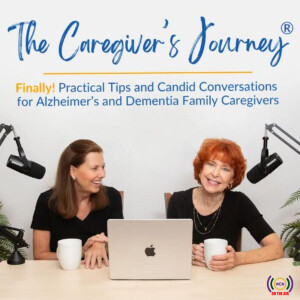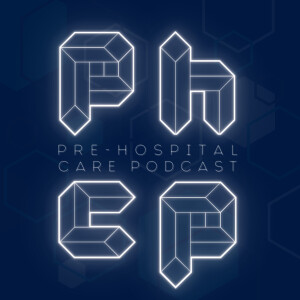

Episode List

Emergency Medicine and PTSD with Sarah Spelsberg
In this series, we are bringing blog posts to life by interviewing the authors. Also, by generating AI audio conversations of the blog to make them accessible in audio format. I then summarise the audio in conclusion. We begin this episode by interviewing Dr. Sarah Spelsberg to add context and personal insight behind an AI‑generated adaptation of her latest RogueMed post, “Emergency Medicine and PTSD.” Through her reflections, we explore how repeated exposure to trauma profoundly affects emergency clinicians.Dr. Spelsberg describes how witnessing death, severe injury, suicides, resuscitations, violence, and patient suffering can lead to chronic stress and PTSD. She highlights that up to 14.6 % of emergency personnel experience PTSD symptoms, higher than rates in police or firefighters. The pressure of balancing life-or-death decision-making with systemic constraints crowded EDs, insufficient staffing, and administrative burdens amplifies emotional strain.Our discussion focuses on the emotional toll of moral injury, guilt, burnout, hypervigilance, flashbacks, insomnia, and emotional exhaustion that haunt providers long after their shifts end. Dr. Spelsberg emphasises that PTSD in emergency medicine isn’t rare it’s predictable under these circumstances and requires culturally appropriate recognition and care.We explore evidence-backed strategies: trauma-informed debriefs, peer support networks, access to psychological therapies like cognitive behavioural therapy and EMDR, and cultivating a culture that normalises seeking help. Dr. Spelsberg underscores that organisational change revamping shift patterns, enhancing supervision, and providing mental health resources is as crucial as individual resilience.By sharing lived experience and actionable solutions, this episode reframes PTSD not as a weakness but as an expected response needing compassion, systemic support, and meaningful action. You can access the blog this podcast is based on here: https://roguemed.medium.com/emergency-medicine-and-ptsd-e0841f945d55My thanks to Sarah Spelsberg for this interview as a co-host of The World Extreme Medicine podcast. This episode is sponsored by PAX: The gold standard in emergency response bags.When you’re working under pressure, your kit needs to be dependable, tough, and intuitive. That’s exactly what you get with PAX. Every bag is handcrafted by expert tailors who understand the demands of pre-hospital care. From the high-tech, skin-friendly, and environmentally responsible materials to the cutting-edge welding process that reduces seams and makes cleaning easier, PAX puts performance first. They’ve partnered with 3M to perfect reflective surfaces for better visibility, and the bright grey interior makes finding gear fast and effortless, even in low light. With over 200 designs, PAX bags are made to suit your role, needs, and environment. And thanks to their modular system, many bags work seamlessly together, no matter the setup.PAX doesn’t chase trends. Their designs stay consistent, so once you know one, you know them all. And if your bag ever takes a beating? Their in-house repair team will bring it back to life.PAX – built to perform, made to last.Learn more at pax-bags.com
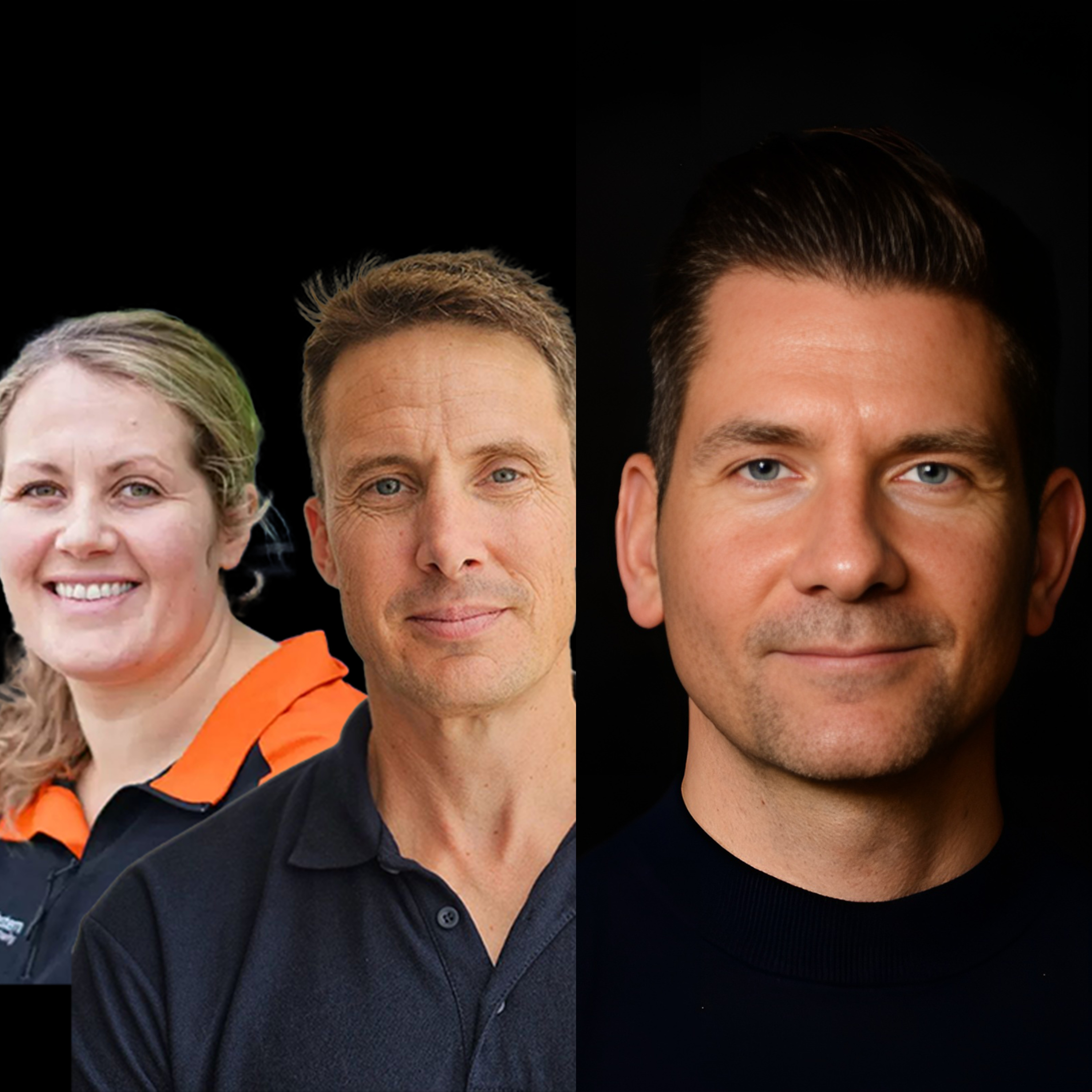
From Cockpit to Critical Care: The role of Immersive Technology with Jamie Anderson and Lily Stanley
In this episode of the Pre-hospital Care Podcast, we explore a cutting-edge innovation that’s transforming how HEMS clinicians are trained for high-stakes, life-saving procedures, such as thoracotomy, resuscitative hysterotomy, and other HALO interventions. We’re joined by Jamie, founder of Maxres, and Lily, a Critical Care Doctor, to discuss how immersive headset training is being introduced into clinical education, starting with the Thames Valley Air Ambulance.Jamie brings a unique perspective from his time as a pilot and helicopter flight instructor in the Royal Air Force, where he experienced first-hand the value of scenario-based, immersive learning. Combined with Lily’s background as a prehospital critical care doctor, their expertise is helping shape a new frontier in clinical preparedness for the most complex and time-critical interventions.Together, we unpack how the MaxRes system works, the science behind its development, and the real-world impact it’s having on clinical performance, confidence, and decision-making. We also look to the future, exploring how this technology could revolutionise pre-hospital education, expand into new clinical domains, and deliver highly realistic, repeatable, and effective training experiences.Whether you’re a critical care paramedic, HEMS doctor, educator, or healthcare innovator, this episode offers an exciting look at where pre-hospital training is heading and how technology developed for the skies is now making a difference on the ground. Further information on MaxRes can be found here: https://maxres.ai/This episode is sponsored by PAX: The gold standard in emergency response bags.When you’re working under pressure, your kit needs to be dependable, tough, and intuitive. That’s exactly what you get with PAX. Every bag is handcrafted by expert tailors who understand the demands of pre-hospital care. From the high-tech, skin-friendly, and environmentally responsible materials to the cutting-edge welding process that reduces seams and makes cleaning easier, PAX puts performance first. They’ve partnered with 3M to perfect reflective surfaces for better visibility, and the bright grey interior makes finding gear fast and effortless, even in low light. With over 200 designs, PAX bags are made to suit your role, needs, and environment. And thanks to their modular system, many bags work seamlessly together, no matter the setup.PAX doesn’t chase trends. Their designs stay consistent, so once you know one, you know them all. And if your bag ever takes a beating? Their in-house repair team will bring it back to life.PAX – built to perform, made to last.Learn more at pax-bags.com
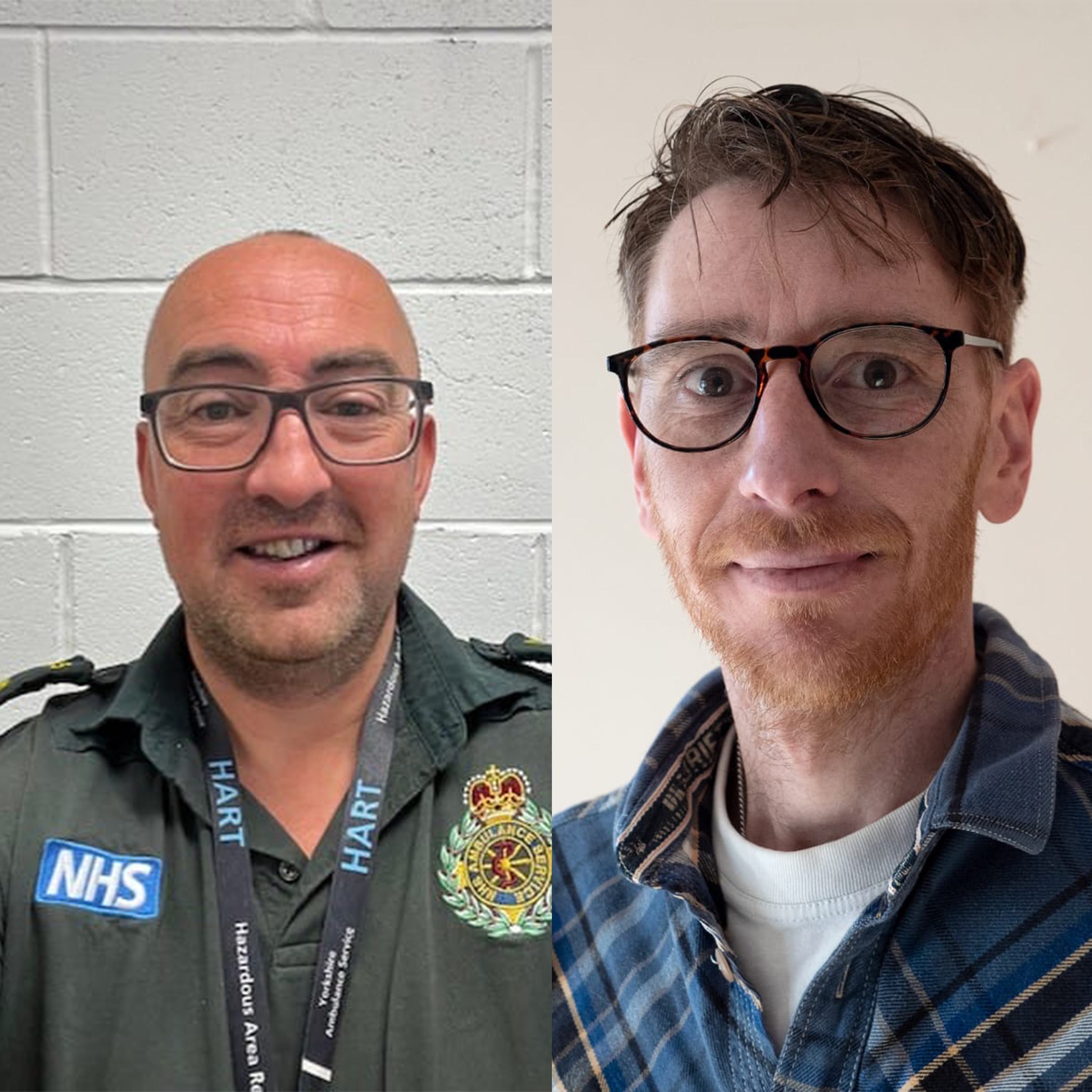
Inside HART: The Evolution and Integration of Hazardous Area Response Teams with Andrew Warner
In this episode of the Pre-hospital Care Podcast, we delve into the origins and current structure of the Hazardous Area Response Team (HART), a specialist unit within UK pre-hospital care. We explore why the HART model was specifically chosen in the UK and how it compares to Urban Search and Rescue (USAR) counterparts internationally. The conversation offers insights into the unique day-to-day role of a HART team member and how the team integrates with the wider emergency medical services, particularly during high-risk or complex incidents.We also reflect on the evolution of HART, how the model has grown from its early foundations into a sophisticated and responsive service that plays a crucial role in emergency preparedness and response. The episode explores the learning mechanisms and governance structures built into HART to ensure continuous development and safe practice.Additionally, we examine how change management and cultural integration have been essential to embedding HART within the wider healthcare and emergency response ecosystem. This includes addressing the 'hearts and minds' aspect, how to build trust, acceptance, and collaboration between specialist teams and frontline responders to ensure effective teamwork and optimal patient care.Whether you're familiar with HART or new to the concept, this episode offers a deep dive into one of the UK's most technically demanding emergency response capabilities and how it continues to shape the landscape of pre-hospital care.This episode is sponsored by PAX: The gold standard in emergency response bags.When you’re working under pressure, your kit needs to be dependable, tough, and intuitive. That’s exactly what you get with PAX. Every bag is handcrafted by expert tailors who understand the demands of pre-hospital care. From the high-tech, skin-friendly, and environmentally responsible materials to the cutting-edge welding process that reduces seams and makes cleaning easier, PAX puts performance first. They’ve partnered with 3M to perfect reflective surfaces for better visibility, and the bright grey interior makes finding gear fast and effortless, even in low light. With over 200 designs, PAX bags are made to suit your role, needs, and environment. And thanks to their modular system, many bags work seamlessly together, no matter the setup.PAX doesn’t chase trends. Their designs stay consistent, so once you know one, you know them all. And if your bag ever takes a beating? Their in-house repair team will bring it back to life. PAX – built to perform, made to last.Learn more at pax-bags.com
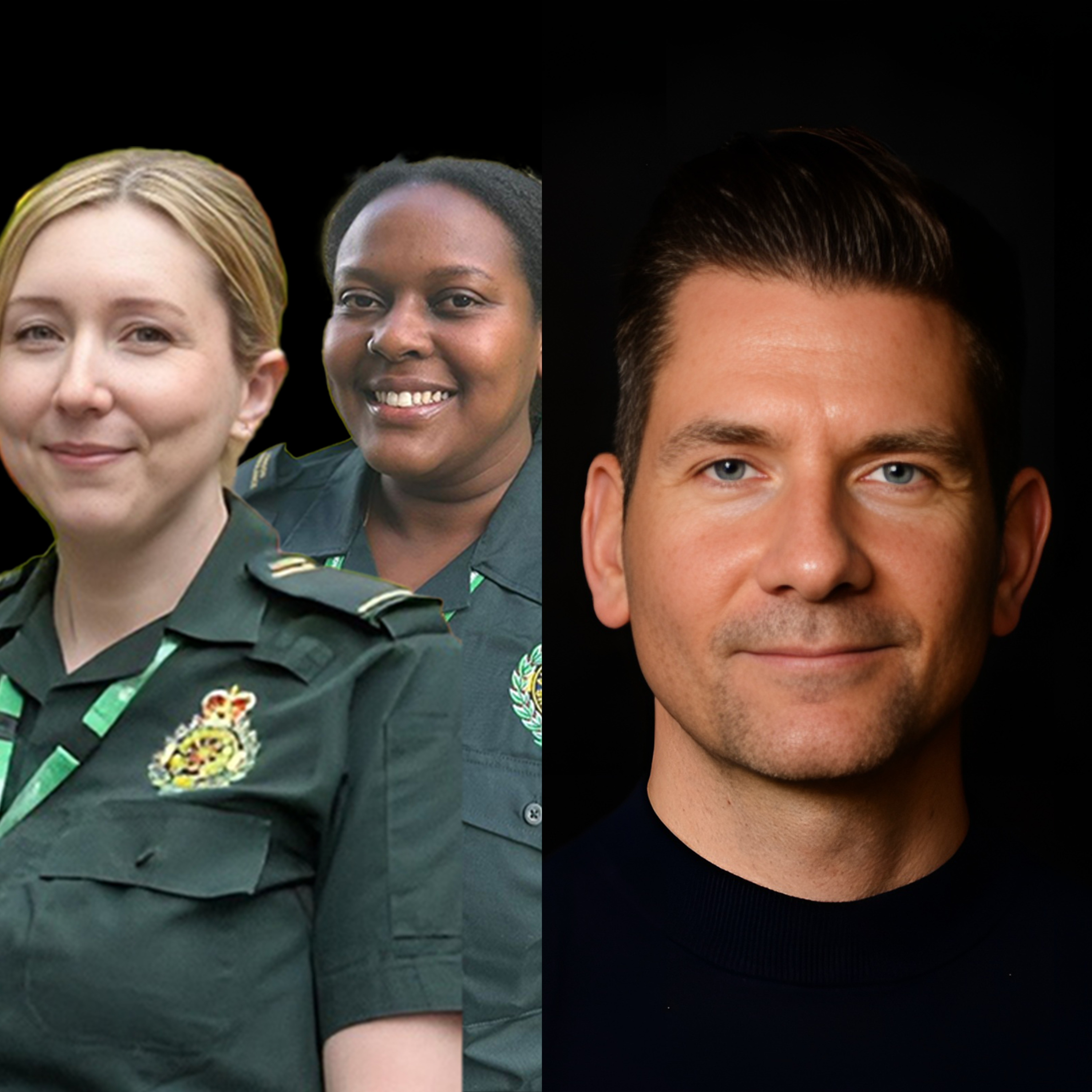
The Dying Patient: Palliative and End of Life Care: Part 3
In Part 3 of The Dying Patient: Palliative and End of Life Care, we delve into the complexities ambulance clinicians face when supporting patients in their final days and hours. Often the first to recognise when someone is dying, paramedics work within a system where community engagement may be limited, making their role crucial in identifying signs such as terminal agitation, unconsciousness, and other common symptoms. The episode discusses the importance of anticipatory medications and proactive advance care planning , especially in situations involving carer breakdown or when patients change their minds about where they wish to die.We explore why ambulance services are frequently called during end-of-life stages, whether due to uncontrolled symptoms, sudden deterioration, or emotional distress within families. Paramedics not only offer symptom relief, both pharmacological and non-pharmacological, but also provide vital emotional support to those navigating grief, denial, or fear. Challenges include differentiating between reversible conditions and active dying, managing care when anticipatory medications are unavailable, and coordinating with wider healthcare teams.Breaking bad news is another critical area discussed, with a focus on using frameworks such as Ask-Tell-Ask and adapting communication to the emotional needs of the moment. Lastly, the episode reflects on cultural considerations in a city as diverse as London. From language barriers and different expressions of grief to religious rituals and care after death, ambulance clinicians must remain adaptable and compassionate, ensuring that care is respectful, inclusive, and sensitive to the needs of every individual and their family. Some of the links to information mentioned in the episode can be found here: These are some of the resources mentioned in the episode:Breaking Bad News: https://www.sth.nhs.uk/clientfiles/File/Breaking%20bad%20news%20Reflection%20on%20the%20process.pdfGood Grief - understanding the grief journey in more detail: https://good-grief.org/resources/Hospice UK, an excellent place for further resources: https://www.hospiceuk.org/our-campaigns/dying-matters/dying-matters-awareness-weekUK National Guidelines on Diabetes and End of Life Care: https://www.diabetes.org.uk/sites/default/files/2025-03/EoL_TREND_2024_v11-1.pdfThis episode is sponsored by PAX: The gold standard in emergency response bags.When you’re working under pressure, your kit needs to be dependable, tough, and intuitive. That’s exactly what you get with PAX. Every bag is handcrafted by expert tailors who understand the demands of pre-hospital care. From the high-tech, skin-friendly, and environmentally responsible materials to the cutting-edge welding process that reduces seams and makes cleaning easier, PAX puts performance first. They’ve partnered with 3M to perfect reflective surfaces for better visibility, and the bright grey interior makes finding gear fast and effortless, even in low light. With over 200 designs, PAX bags are made to suit your role, needs, and environment. And thanks to their modular system, many bags work seamlessly together, no matter the setup.PAX doesn’t chase trends. Their designs stay consistent, so once you know one, you know them all. And if your bag ever takes a beating? Their in-house repair team will bring it back to life.PAX – built to perform, made to last.Learn more at pax-bags.com

Decision Making in Slow Time: Leading with Intentionality Under Pressure with Ahenkora Bediako. Decision Making Part 3
In Part 3 of our Decision Making series, we explore the power of "slow time" thinking with Detective Superintendent Ahenkora Bediako of the Metropolitan Police. With a distinguished career managing high-risk public protection departments and international investigations, Ahenkora brings deep insight into how intentional, non-biased decisions are made under pressure.We unpack how leaders can resist reactive impulses in crisis moments and instead lean into deliberate, evidence-informed strategies, especially when the stakes are high. Drawing on his experience as an Accredited Major Crime Senior Investigating Officer (PIP3), Ahenkora shares lessons from frontline policing, complex safeguarding, and professional standards.We also touch on his commitment to evidence-based policing, including randomised control trials, and how these approaches improve outcomes in child protection, community engagement, and organisational equity. If you're interested in high-performance leadership, decision integrity, and building inclusive, accountable systems, this episode is for you. This episode is sponsored by PAX: The gold standard in emergency response bags.When you’re working under pressure, your kit needs to be dependable, tough, and intuitive. That’s exactly what you get with PAX. Every bag is handcrafted by expert tailors who understand the demands of pre-hospital care. From the high-tech, skin-friendly, and environmentally responsible materials to the cutting-edge welding process that reduces seams and makes cleaning easier, PAX puts performance first. They’ve partnered with 3M to perfect reflective surfaces for better visibility, and the bright grey interior makes finding gear fast and effortless, even in low light. With over 200 designs, PAX bags are made to suit your role, needs, and environment. And thanks to their modular system, many bags work seamlessly together, no matter the setup.PAX doesn’t chase trends. Their designs stay consistent, so once you know one, you know them all. And if your bag ever takes a beating? Their in-house repair team will bring it back to life.PAX – built to perform, made to last.Learn more at pax-bags.com
You may also like
Create Your Podcast In Minutes
- Full-featured podcast site
- Unlimited storage and bandwidth
- Comprehensive podcast stats
- Distribute to Apple Podcasts, Spotify, and more
- Make money with your podcast









